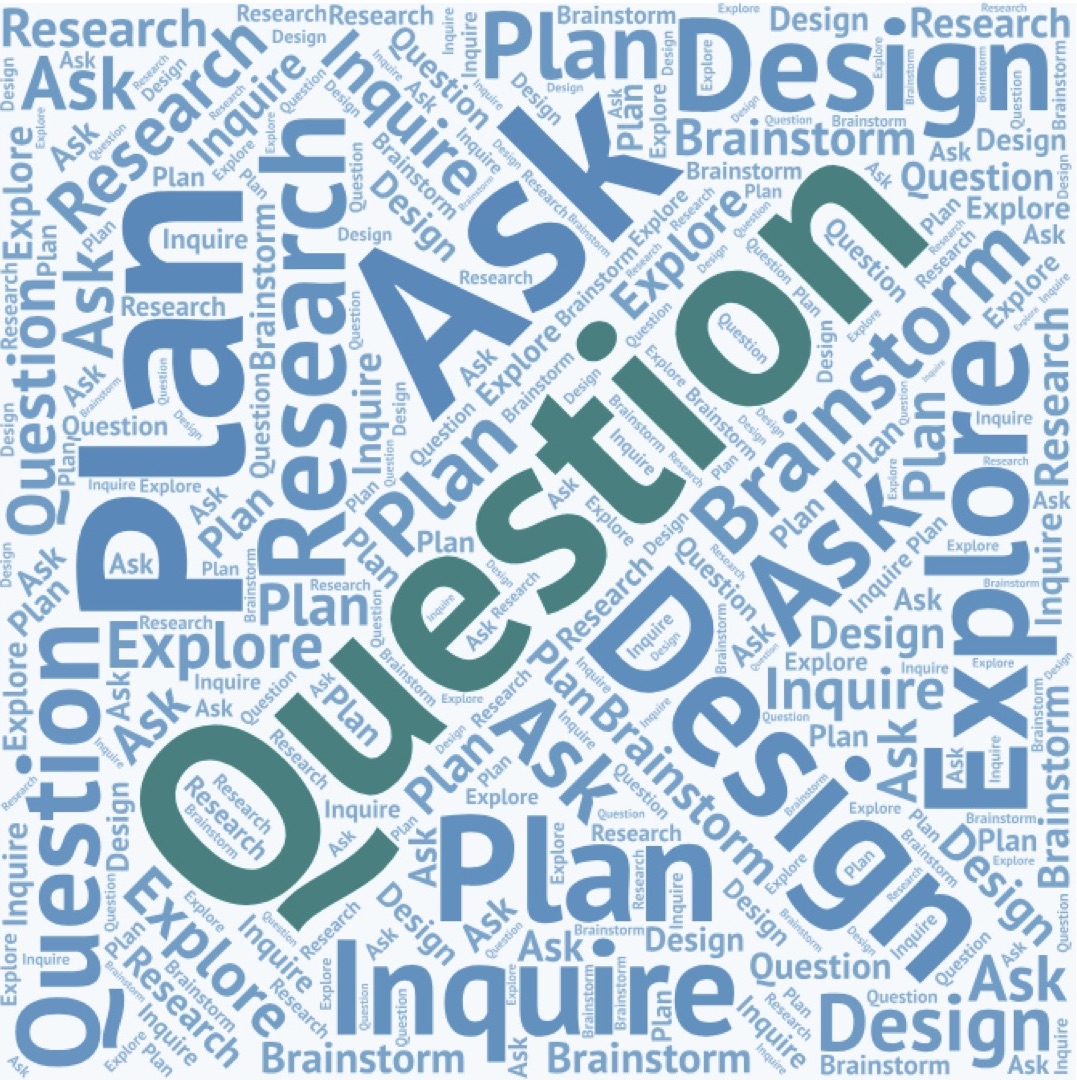Student Roadmap - Research Question
Good Questions Come from Examining the Ideas Closely

Based on your explorations, class discussions, and background research, what do you want to know about? What do you see with plants everyday? How might this relate to your research topic?
Write your questions down in your lab notebook. Discuss these with your teammates to come up with a "menu" of possibilities.
Do your observations present anything that confuses you? The point of confusion may be a good focus for your research.
Don't necessarily settle on the first question that interests your team. Take a bit of time to talk about which one might be the best to test. Don't worry about the hypothesis stuff now. Just use good reasoning and observations to start with.
Understand what a prediction is and isn't
A prediction:
- is more than a one-word answer.
- is not a Right Answer.
- describes what you think will happen in your experiment and how you think it happened.
- specifies under what conditions your prediction is valid.
- includes a well-reasoned explanation of how you think something works.
Tips for Making Predictions
Understand what the method measures and what you're trying to measure.
- What does the method measure?
- What am I comparing?
- What are the possible outcomes?
Understand how the method works.
- How does the method work?
- What causes the effect I'm seeing?
Use the science (what you think you understand about germination, photosynthesis, or whatever your research topic might be) to make sense of the "how."
- What do I think is going on in my research topic?
- How does germination (or photosynthesis) work in the light? Or under the conditions I'm testing?
If your explanations make sense so far, then push it further. What would happen if you pushed conditions to either extreme? Do your ideas about how this experiment works still hold? What about your explanation works? What doesn't?
You and your teammates may disagree. Not a problem, as long as each of you has a convincing explanation for your predictions. Make sure to fully explain why you think what you think.
Choose 2-3 Research Questions to Discuss with Your Mentor
Your brainstorming session should have given you at least a couple (if not too many) questions. A research question is still pretty general. It isn't an "If…, then.." hypothesis. It's more like, "Are shade-loving plants as photosynthetically active as sun-loving plants?" Your if-then statements come later, when you are creating your research plan and experiments.
To help you choose one, ask yourselves this:
- Which one interests you most?
- Which one has a valid real world connection?
- Which one is the most meaningful from a scientific standpoint?
- Do I have or can I get the plant materials to explore it? What about the methods? You can also invent your own tools.
How To Decide If Your Question Is Scientifically Meaningful?
- It's meaningful if there is a valid real world connection that scientists might have asked or currently be investigating.
- It's meaningful if you don't know the answer to the question. A research question means that you have a working model for predicting what might happen, but you don't already know the outcome. Investigations aren't done just to demonstrate something you already know. They're done because you need to find something out.
If you have your PlantingScience login and a computer handy, blog it! Use your scientist mentor to bounce around your ideas. Narrow down the possibilities to one research question.